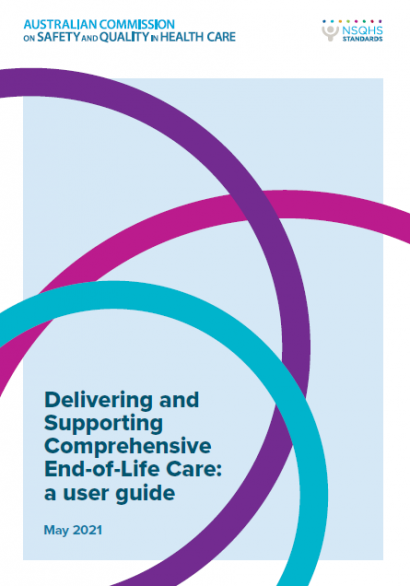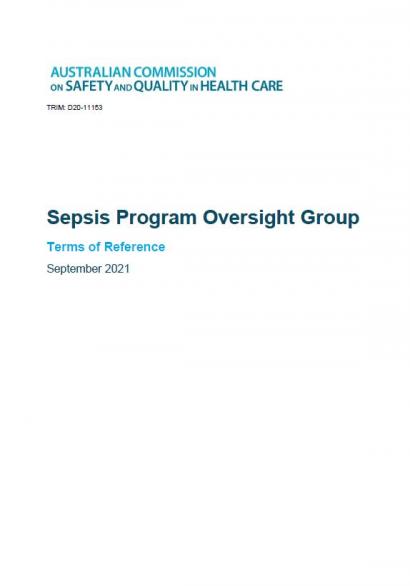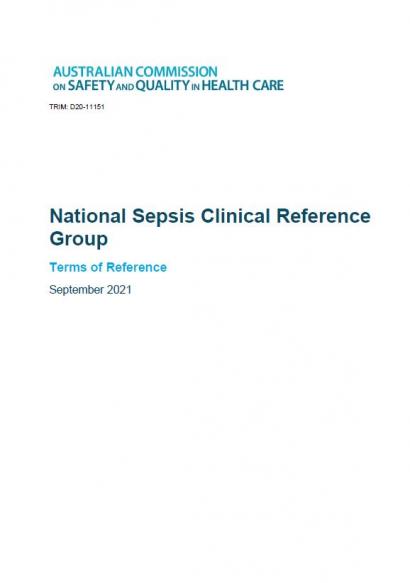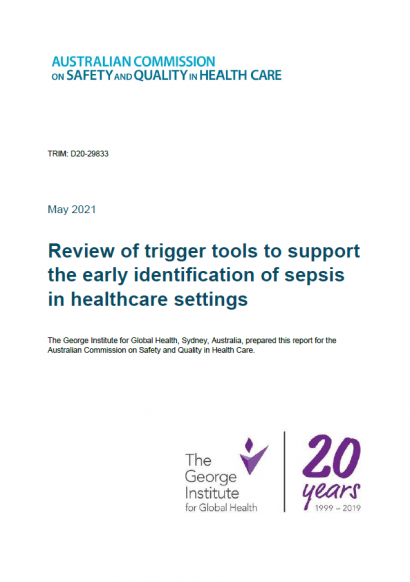Good health information is important and can help you make informed decisions. These resources contain tips to help consumers find good health information online.
These case studies are designed to assist health services on the journey to embed person-centred care and consumer partnerships.
The Safety and Quality Advice Centre (the Advice Centre) provides support to health service organisations, assessors and accrediting agencies on the implementation of Safety and Quality Standards and accreditation assessment requirements under the Australian Health Service Safety and Quality (AHSSQA) Scheme.
The Commission has developed a range of resources to support hospitals measure safety culture.
Hospital management’s role in patient safety culture. What are the benefits of using measurement of patient safety culture to improve the care you provide.
The Commission delivered consultations to develop the requirements for the National One Stop Shop and the National Clinical Trials Front Door, on behalf of the Australian Government Department of Health and Aged Care, in partnership with all jurisdictions via the Clinical Trials Project Reference Group.
A range of media and communications assets are available to help promote the Fourth Australian Atlas of Healthcare Variation 2021.
World Hand Hygiene Day is held annually on 5 May. The 'Save Lives: Clean Your Hands' global campaign was launched by the World Health Organization (WHO) in 2009.
New resources are now available for World Hand Hygiene Day 2025.
The Commission undertakes projects and programs to support the safe and quality use of medicines. This includes national guiding principles and national indicators for QUM in Australian hospitals.
From 1 January 2023, the Commission became the custodian of a range of QUM functions, expanding our role in QUM stewardship. For more information about these QUM functions please visit the QUM Transition page.
Summaries of the key data findings for each state and territory, as well as a national data summary from the fourth Atlas 2021 are available for download:
The Commission consulted widely in the development of this Atlas including with a number of clinical colleges and societies, the Australian Government Department of Health, state and territory health departments and healthcare organisations. The Commission also wishes to acknowledge the significant contribution of its advisory groups and other experts.
The Commission made the following overarching recommendations in light of the findings of the Fourth Australian Atlas of Healthcare Variation. These broad recommendations relate to more than one of the topics covered in the fourth Atlas.
The National Safety and Quality Mental Health Standards for Community Managed Organisations (NSQMHCMO Standards) will help provide safety and quality assurance for consumers, their families and carers and best practice guidance for community managed service providers.
Implementation resources have been released to support accreditation to the NSQMHCMO Standards.
Polypharmacy is when people are using five or more medicines at the same time. This can increase their risk of medicines-related harm. Find out about variation in rates of polypharmacy in the Fourth Australian Atlas of Healthcare Variation 2021.
Gastroscopy is used to investigate, treat and monitor some gastrointestinal conditions. Find out about variation in repeat gastroscopy services in the Fourth Australian Atlas of Healthcare Variation 2021.
The Fourth Australian Atlas of Healthcare Variation examines variation in healthcare use according to where people live. It covers six clinical areas: early planned births; chronic disease and infection; ear, nose and throat surgery in children and young people; lumbar spinal surgery; gastrointestinal investigations; and medicines use in older people. The Atlas was launched by the Hon Greg Hunt MP on 28 April 2021.




